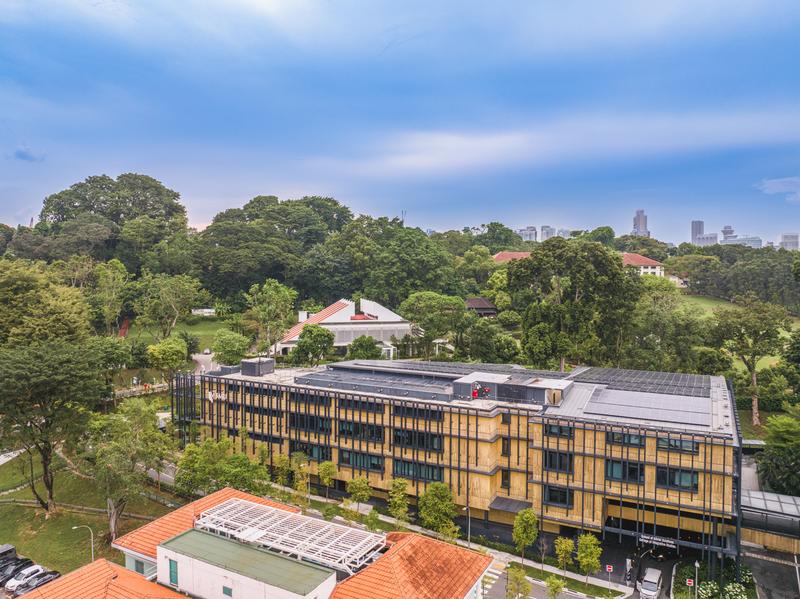Greenhouse Gas Emissions
We track and publicly report on our Scope 1 and 2 carbon emissions and began assessing selected sources of Scope 3 emissions since 2019.
Scope 1 and 2 Emissions
Carbon Neutral by 2030
We have reduced our Scope 2 location-based carbon emissions significantly since 2006 through various energy efficiency improvement measures. Despite limited land and roof space, approximately 10% of our current energy demand is supplied by onsite green energy. Since 2020, we have also invested in renewable energy certificates to offset all our remaining Scope 2 emissions.
Due to excellent public transport connectivity and pedestrian access of our city campus, we do not own a campus fleet apart from two hybrid/electric cars. Refrigerant leakage is also insignificant. As such our Scope 1 emissions are negligible, constituting less than 0.05% of our total Scope 1 and 2 emissions in a typical year.
Total Scope 1 and 2 emissions have reduced by 37% from 13,354 tCO2e in CY2006 to 8,416 tCO2e in CY2024. We have purchased renewable energy certificates to offset all remaining Scope 2 emissions, leaving only Scope 1 emissions of 367 tCO2e in CY2024. The much higher Scope 1 emissions in CY2024 were due to refrigerant top-ups required as a result of chiller system maintenance works.

Scope 3 Emissions
We have conducted a baseline assessment of emissions from our freshwater consumption, solid waste, business air travel, purchased goods and services, and investments. We plan to expand this in future to include other sources of business travel emissions and those from student travel. These sources are estimated to constitute the bulk of our Scope 3 emissions. As there is still a lack of unified calculation methodologies, applicable emission factors and limited data availability, we intend to track emissions from these sources internally for the time being while we work on improving the comprehensiveness and reliability of our Scope 3 carbon emissions data.
What you can do
- Manage and reduce your personal carbon footprint with the help of online calculators such as UN's Carbon Footprint Calculator, Singapore Power's Carbon Footprint Tracker tailored for Singapore residents or Global Footprint Network's Ecological Footprint Calculator, which comprehensively compares your demand on nature against nature's capacity to regenerate.
- Learn more about carbon accounting and Environmental, Social and Governance (ESG) reporting through our undergraduate courses such as "Sustainability Accounting and Reporting", as well as through modules offered by SMU Academy such as "Introduction to Carbon Accounting: Carbon Emissions and Reporting for Corporations"; "Environmental & Carbon Management for a Sustainable Economy"; and "Environment, Social and Governance (ESG) and Materiality Reporting".
- Support verified regenerative projects through Handprint, a startup co-founded by Assistant Professor of Strategy and Entrepreneurship, for planet positive impact.